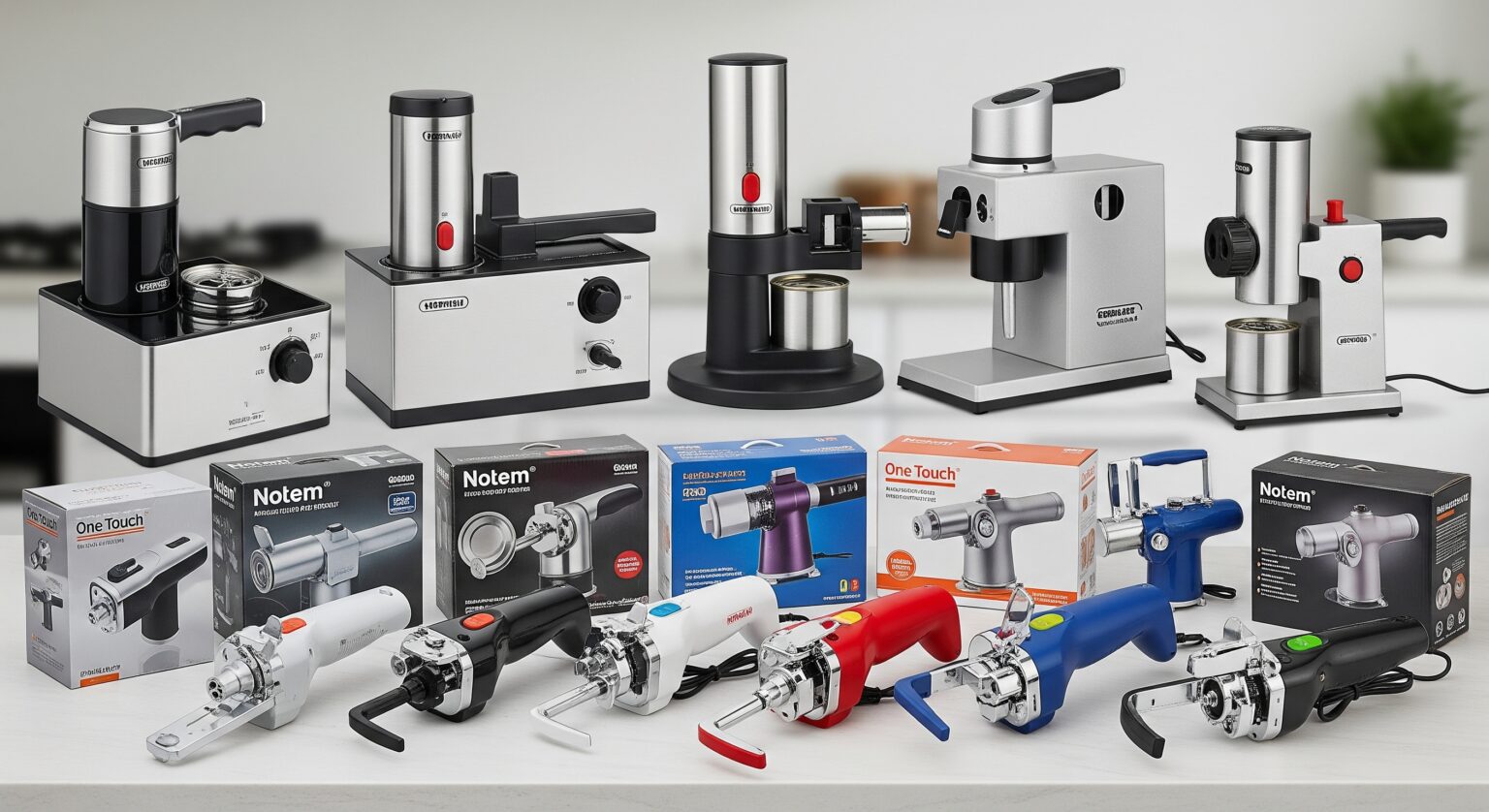Safety of Household, Commercial and Similar Electrical Appliances
Electric Can Openers
Strategic Recommendations for Electric Can Openers
- Start BIS Certification Process Now
Avoid last-minute delays by initiating the certification process early, including application, testing, and label approval.
- Partner with Compliance Experts
Collaborate with ERA’s technical team to handle documentation, audit readiness, and post-certification packaging compliance.
- Contact ERA Support Team
📧 cs@eraglobal.co.in | 📞 +91 9599296331 | 💬 WhatsApp
Get expert help with BIS licensing, ISI marking, and Schedule A declaration.
- Track Notifications & Circulars
Subscribe to the ERA Newsletter for updates on BIS circulars, gazette amendments, and deadlines related to electrical appliance QCOs.
- Ensure Marking Before Sale
Every electric can opener must be ISI-marked before entering the Indian market. Include pre-dispatch checks and audit trails to ensure full conformity.

| Section | Details |
|---|---|
| Product Name | Electric Can Openers |
| Applicable Indian Standard (IS) No. | IS 302 (Part 1):2024 |
| Title of Indian Standard | Household and Similar Electrical Appliances – Safety – Part 1: General Requirements |
| Quality Control Order | Safety of Household, Commercial and Similar Electrical Appliances (Quality Control) Order, 2025 |
| Notification & Amendments | Notified via S.O. 2232(E), dated 19 May 2025 Supersedes QCO 2024: S.O. 4098(E), dated 17 Sept 2024 |
| Final Enforcement Date | Large & Medium Enterprises: 19 March 2026 Small Enterprises: 19 June 2026 Micro Enterprises: 19 September 2026 |
| Objective & Scope | To ensure electrical safety, hygiene, and durability of electric can openers used in homes, commercial kitchens, and institutions. |
| Products Covered | Electrically operated can openers for domestic or light commercial use, operating at ≤250V AC or ≤480V DC. |
| Exemptions | - Products manufactured solely for export - Imports for R&D (max 200 units/year) - Declared non-marked stock by certified/applicant licensees allowed clearance within 6 months |
| Industries Impacted | Kitchen Appliance Brands, Commercial Catering Units, Food Service Equipment Suppliers, Retailers and E-commerce |
| Mandatory Compliance | - Must comply with IS 302 (Part 1):2024 - BIS certification under Scheme-I is mandatory - ISI mark must be displayed on product and retail pack |
| Next Steps for Stakeholders | Apply for BIS license, Conduct lab testing, Label products with ISI mark, Declare non-marked inventory under Schedule A |
| Legal Framework Provision & Enforcement | Enforced under BIS Act, 2016 by the Bureau of Indian Standards (BIS), which has full authority to inspect and prosecute |
| Penalties | Non-compliance may result in seizure of stock, license suspension, fines, or imprisonment up to 2 years, or both |
| Conclusion | From 19 March 2026, BIS certification and ISI marking under IS 302 (Part 1):2024 will be mandatory for electric can openers sold in India. Early compliance will prevent regulatory or business disruptions. |
| References/Annexures | - QCO 2025: S.O. 2232(E) [19 May 2025] - Superseded QCO 2024: S.O. 4098(E) [17 Sept 2024] |
Ready to start your certification journey?
Let us help you navigate regulatory challenges and achieve certification with ease. Leave us your details, and we’ll get back to you—or request a free consultation today.
Get in touch with us today
Notification
Electric Can Openers are covered under the Safety of Household, Commercial and Similar Electrical Appliances (Quality Control) Order, 2025, notified by S.O. 2232(E) on 19 May 2025, under the BIS Act, 2016. This regulation supersedes the earlier 2024 QCO notified via S.O. 4098(E).
Overview
Electric can openers automate the process of opening metal cans in home kitchens and commercial food preparation. Given the sharp mechanical parts and proximity to food, these appliances must adhere to strict electrical and structural safety norms.
Objective & Scope
The regulation mandates conformity to IS 302 (Part 1):2024, which sets comprehensive safety criteria including insulation, resistance to moisture, electrical shock protection, blade safety, and construction integrity for electric kitchen tools.
Products Covered
- Electric can openers for domestic and institutional kitchens
- Tabletop or hand-held motorized units
- Units operating at ≤250V AC or ≤480V DC
Exemptions Provided
- Appliances manufactured exclusively for export
- Imports for R&D purposes (up to 200 units/year)
- Non-marked stock declared under Schedule A by certified/applicant units may be sold within 6 months of enforcement
Industries Impacted
- Appliance OEMs and Private Label Manufacturers
- Commercial Kitchen Equipment Suppliers
- Retail and Online Marketplaces
- Institutions and Hospitality Kitchens
Mandatory Compliance Requirements
All electric can openers must:
- Comply with IS 302 (Part 1):2024
- Be certified under Scheme-I of BIS
- Carry a valid ISI mark on both product and packaging
Enforcement Timeline
- Large & Medium Enterprises: 19 March 2026
- Small Enterprises: 19 June 2026
- Micro Enterprises: 19 September 2026
Next Steps for Stakeholders
- Initiate BIS license application
- Conduct mandatory product testing in BIS-approved labs
- Apply ISI mark before product distribution
- Declare old stock under Schedule A for exemption clearance
Legal Provisions, Enforcement & Penalties
This QCO is enforced under the BIS Act, 2016 by the Bureau of Indian Standards.
Non-compliance may result in:
- Seizure of uncertified or unmarked inventory
- Suspension or cancellation of BIS license
- Fines and/or imprisonment up to 2 years, or both
Conclusion
From 19 March 2026, all electric can openers manufactured, sold, or imported in India must be BIS-certified and carry the ISI mark as per IS 302 (Part 1):2024. This is essential to ensure user safety and legal conformity. Stakeholders must prepare well in advance to avoid enforcement actions or supply disruptions.
Ready to start your certification journey?
Let us help you navigate regulatory challenges and achieve certification with ease. Leave us your details, and we’ll get back to you—or request a free consultation today.
